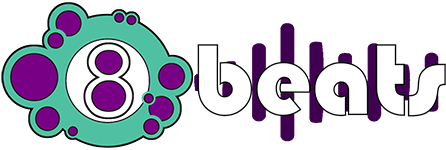Content
An alcohol taper is the process of slowly reducing your alcohol intake. When you gradually drink less instead of quit cold turkey, you give your body a chance to get used to smaller amounts of alcohol. For most people, the safest way to quit is to taper off alcohol gradually. Tapering off gives your body time to adjust to living without the effects of alcohol by slowly reducing your intake over a period of days or weeks. It can be very hard to quit drinking, and isn’t something that should be done alone. If someone were to attempt to stop drinking alcohol without tapering off their use, this will then display symptoms of alcohol withdrawal.

Whether you feel like you drink too much alcohol, or you have an alcohol abuse issue, quitting drinking cold turkey can be dangerous. Knowing how to safely taper off alcohol can make all the difference in how successful you are in quitting drinking. You will need to follow an alcohol tapering schedule so that you can find the best method for your circumstances. It’s also important to note that there are several ways to taper off alcohol successfully. The main methods include reducing the amount of drinks you consume every day, reducing the number of days that you drink, or even swapping your usual drink for one you don’t like. A popular way to taper off alcohol is to gradually reduce the number of drinks you consume over a period of time.
How to Wean Off Alcohol Safely
When a person is being treated in an outpatient setting, however, they may have access to a whole bottle that can be abused. It is important to be aware of the abuse potential when taking Ativan for alcohol withdrawal. The symptoms of alcohol withdrawal can be uncomfortable, painful and even life-threatening in some cases. The most common symptoms are rapid heartbeat, sweating, nausea and vomiting, tremors and exhaustion. Some of the more dangerous symptoms include hallucinations, panic and seizures.
Is it good to cut back on drinking?
Many alcohol-related health risks don't appear until later in life. This means that how much and how often we drink now can have affect our health later in life. Making small, positive changes now will help reduce risks for a long list of health harms including cancer, liver and heart disease.
One of the major problems with alcohol withdrawal is that it can lead to relapse. When someone feels uncomfortable during withdrawal, they are more likely to start drinking alcohol again. Drinking alcohol is one of the fastest ways to stop symptoms, but it also perpetuates the problem. Since Ativan helps relieve alcohol withdrawal symptoms, it can help reduce the risk of relapse.
Ways to Taper Off Alcohol
Little data is available about the safety and effectiveness of alcohol tapers. In contrast, robust evidence supports quitting sober house alcohol while under medical supervision. This means that there is little data about the best way to taper your drinking.
Tapering off alcohol is the act of slowly reducing alcohol intake until a person becomes completely abstinent. Tapering off alcohol to reduces potential withdrawal symptoms and decreases the likelihood of a potentially fatal withdrawal from alcohol in individuals who consume alcohol on a regular basis. For those who try to follow their own alcohol tapering schedule at home, they are more likely to increase the level of their drinking to their original levels. This can become dangerous, as your tolerance to alcohol will reduce over time as you taper off the alcoholic beverages. The absence of alcohol will mean that if you were to return to your former levels of alcohol consumption, you could potentially put yourself in fatal circumstances. Even when alcohol manages to gain a grip over every single part of your life, it can still be hard to embrace the idea of going sober.
Drug and Alcohol Addiction
Your healthcare provider may also recommend that you switch to weaker types of alcohol. The support of an alcohol detox program may help you wean off alcohol more quickly and with fewer unpleasant side effects. Some detox programs also offer therapy to prepare you for addiction treatment.
It may seem simple to count each drink you consume, but all drinks are not created equal. The alcohol content itself is important, and it depends on the percentage of alcohol, the proof of the alcohol and the actual amount of alcohol in the drink. If you plan to taper your drinking in order to stop, make sure that you limit your intake consistently, avoid fluctuations, and adhere to a weekly reduction schedule with a set date to stop. Generally speaking, alcohol home detox is neither the most effective nor the safest method of quitting alcohol.
For Immediate Treatment Help Call 800-526-5053
Instead, slowly cutting back on your drinking, or using an alcohol tapering schedule, is a safer method to become sober. Consultation with a medical professional or recovery coach is strongly recommended. If you drink heavily, this includes making sure you have a safe plan for quitting alcohol. Heavy drinkers should never abruptly quit alcohol without medical supervision, as alcohol withdrawal symptoms can be dangerous. Tapering involves slowly decreasing alcohol use over time, which helps to reduce withdrawal symptoms and improve safety when quitting alcohol.
However, for many people with alcohol use disorder, tapering off alcohol is a far better experience than quitting abruptly. Currently enrolled in a master’s program for Social Work, he is committed to expanding his knowledge and providing comprehensive care. Inspired by his upbringing in Bolivia, marked by poverty, unaddressed mental health, and substance use, he brings a unique perspective to his role as a Primary Therapist at the Freedom Center. He tailors treatment plans to meet individual needs, fostering healing and growth.
